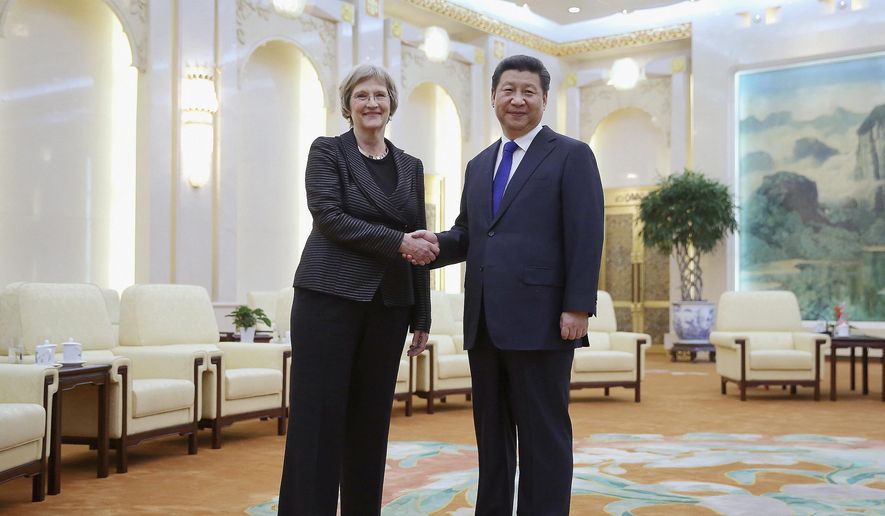OPINION:
A December headline from Campus Reform states, “Communist influence? 14 profs busted for China connections in 2020.” This is just the latest in a line of too-recent headlines above stories that showcase the increasingly certain infiltration of communist Chinese influence in America’s places of higher learning.
The alarm bells clang loudly. Or they should, anyway.
America’s college campuses, already corrupted in recent decades by far left Marxist-loving professors bent on reliving their 1960s-style protest years, have now, apparently, obviously, become even more dangerous places for the youth of the country. Nothing says “Tear Down These American Walls” like a pro-communist, properly propagandized youthful batch of college grads — yes?
“Harvard leads U.S. colleges that received $1 billion from China,” The Philadelphia Inquirer wrote in February.
Roughly 115 colleges in the United States have taken money from mainland China over the last few years, Bloomberg found. After Harvard, came the University of Southern California and the University of Pennsylvania.
Not only is China’s government slipping money into the hands of college administrators across America. But China’s government is also sending a growing number of their youth to attend American colleges.
“[T]he number of Chinese students at U.S. colleges has almost tripled over a decade,” The Philadelphia Inquirer wrote. “China accounts for one-third of the 1.1 million foreign students.”
So what?
So this: These foreign students form a bridge between America and China — and given the stark differences between governments, the inherent dangers of bridging a nation of individualism with a nation of collectivism cannot be dismissed.
Or ignored.
It’s money plus manpower — communist money plus communist manpower — seeping and soaking into America’s college campuses.
The national security risks are both real and substantial.
In September, University of Virginia researcher Haizhou Hu was captured by authorities as he tried to exit America, stage left, on a plane set for China. Federal authorities accused him of possessing “bio-inspired research simulation software code that he was not authorized to possess,” Campus Reform noted.
In August, UCLA researcher Guan Lei was arrested under a cloud of suspicion he transferred sensitive information to China. That was around the same time he lied to federal authorities about his training in China’s military.
In July, University of Arkansas professor Simon Saw-Teong was indicted on 42 counts of wire fraud, and two counts of passport fraud. On that, the FBI’s special agent in charge in Little Rock said: “This significant federal charges leveled against Simon Ang demonstrate how real the PRC’s [People’s Republic of China] pervasive threat is to Arkansan innovation and businesses.”
That’s a sampling of the arrest records.
There are more, many more. Just like there are more, many more ways — from movies to technology to health care to trade — that China is pressing forth its Chinese influences into American society and politics.
“Chinese Values Are Changing America,” The Atlantic wrote, back in October of 2019.
Yes, indeed. And not in ways that definitively favor the American way, either.
With the growth of China influence on America’s college campuses, though, this threat to American society and politics and national security promises to prove generational.
If U.S. youth are trained in the communist way, there’s really no effective way to combat the communism in the coming years.
• Cheryl Chumley can be reached at cchumley@washingtontimes.com or on Twitter, @ckchumley. Listen to her podcast “Bold and Blunt” by clicking HERE. And never miss her column; subscribe to her newsletter by clicking HERE. Her latest book, “Socialists Don’t Sleep: Christians Must Rise Or America Will Fall,” is available by clicking HERE.




Please read our comment policy before commenting.